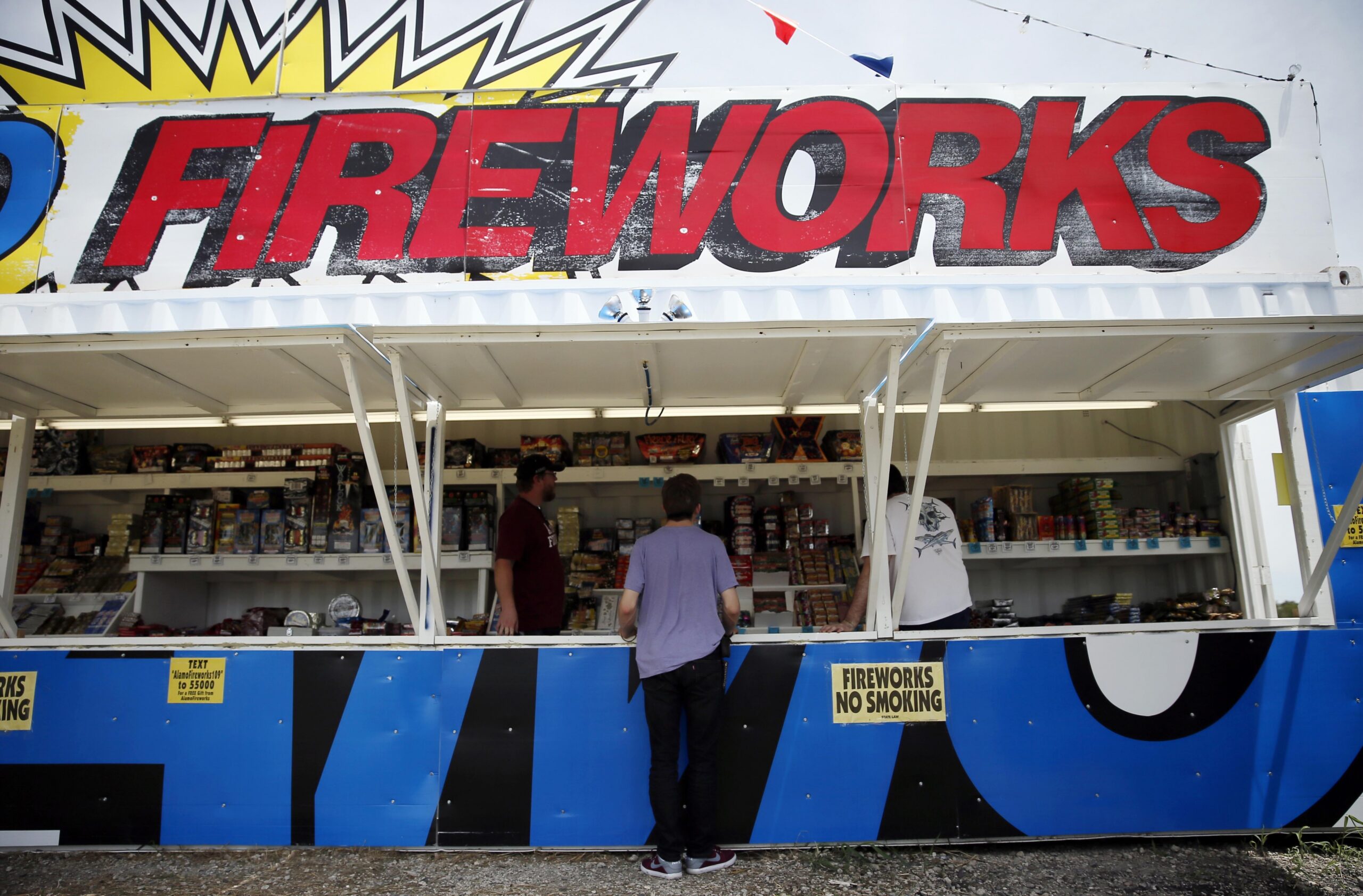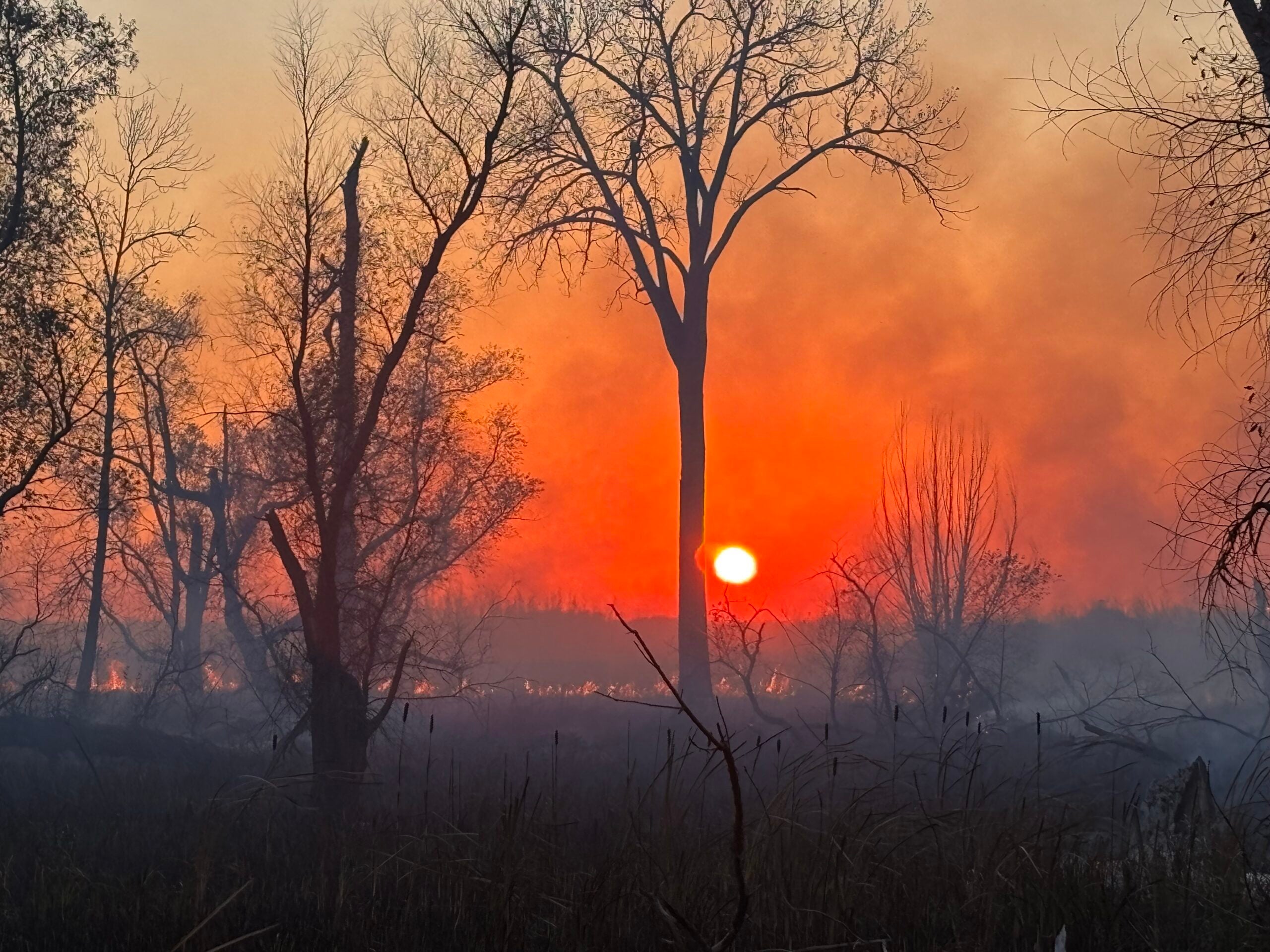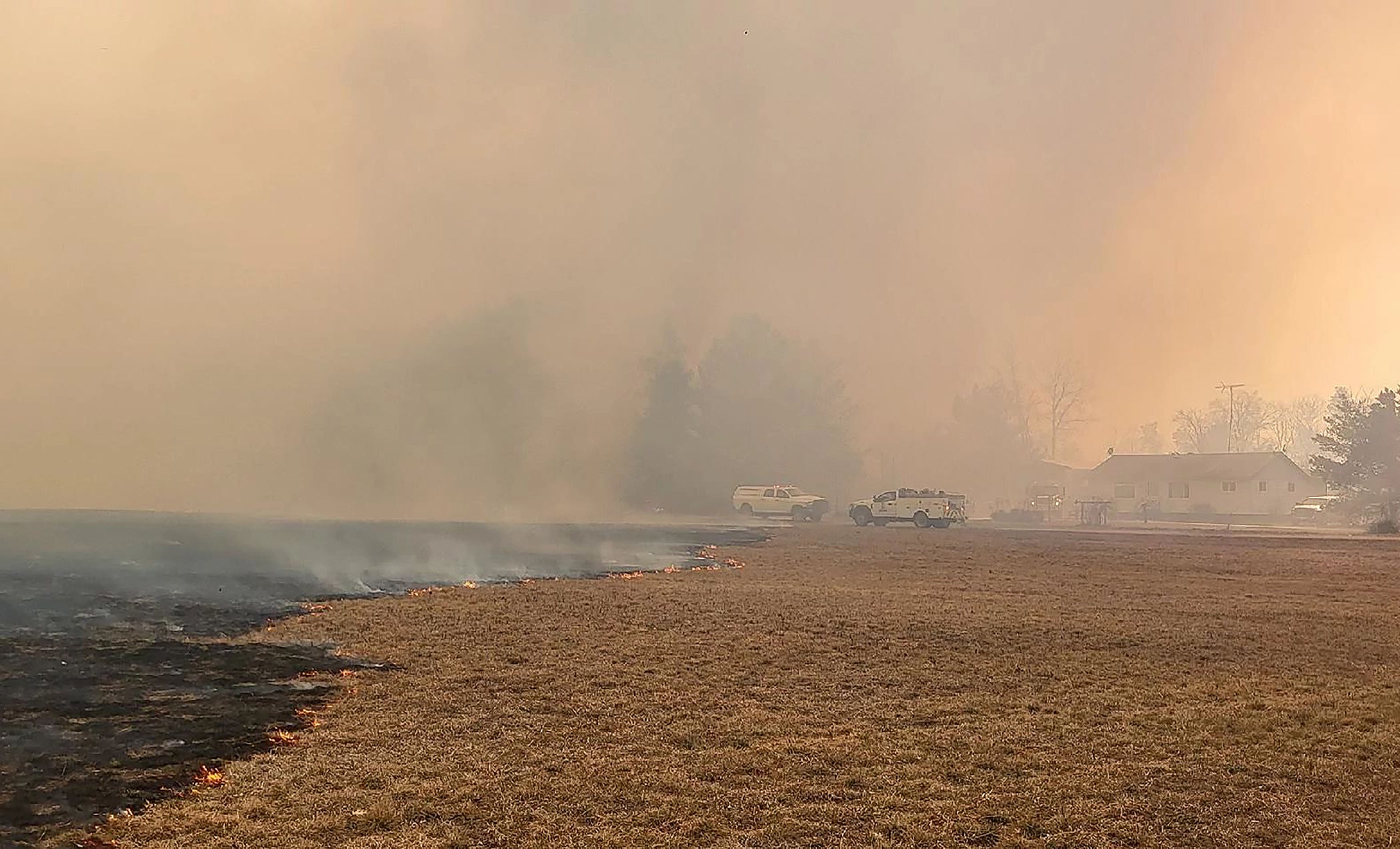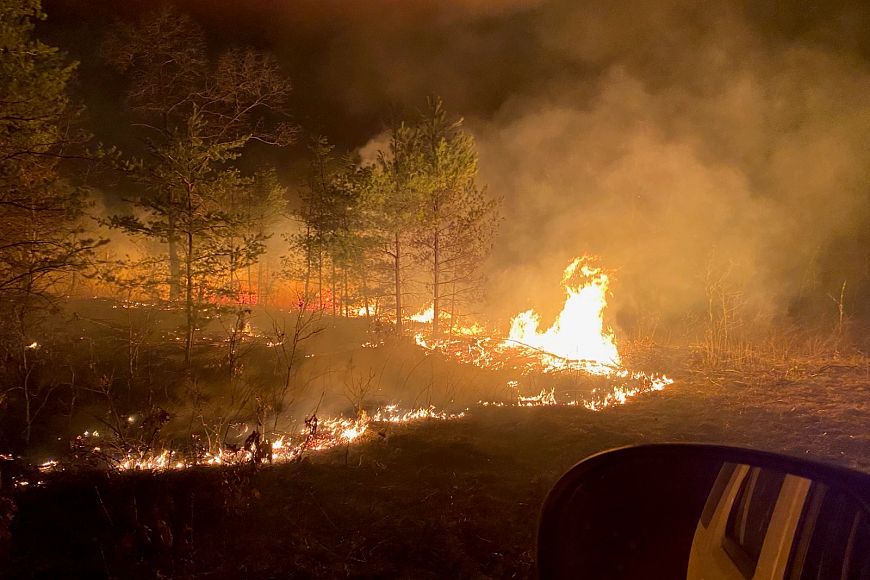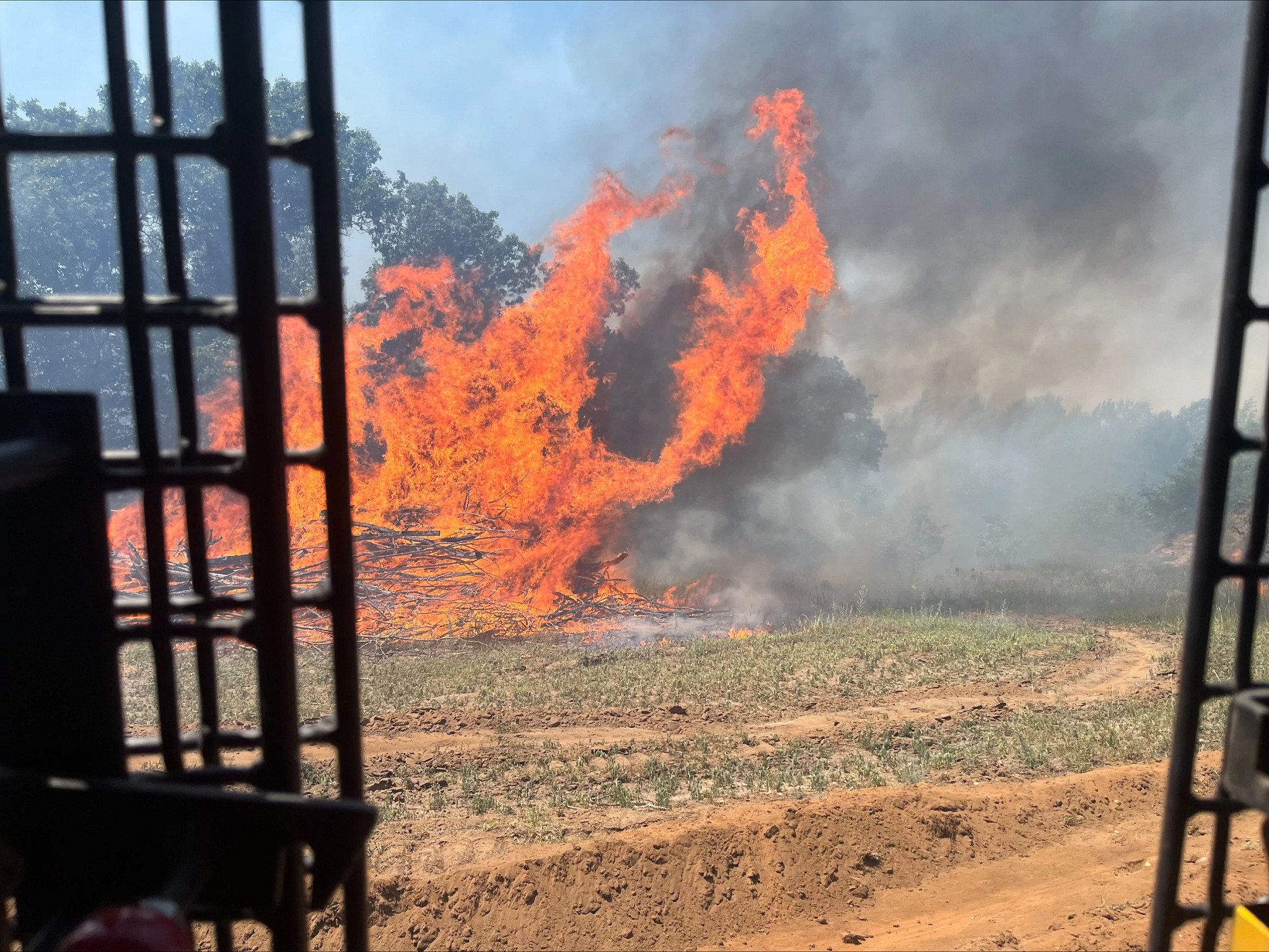Roman candles, skyrockets, even sparklers — state fire officials are warning residents about the dangers of using fireworks amid a dry spell during the Fourth of July holiday.
At least one Wisconsin community has even canceled their July Fourth fireworks celebration because of the conditions, as fireworks cause thousands of fires each year.
Marc Sass, a cooperative area forest ranger with the Wisconsin Department of Natural Resources, said much of the state is experiencing moderate drought conditions, while some pockets of the state have severe drought conditions, according to the U.S. Drought Monitor.
News with a little more humanity
WPR’s “Wisconsin Today” newsletter keeps you connected to the state you love without feeling overwhelmed. No paywall. No agenda. No corporate filter.
The DNR said most wildfires caused by fireworks occur during the weeks leading up to and after the July Fourth holiday or under extended drought conditions.
“With our ground conditions and our vegetation conditions as dry as what they are coming into the holiday … we just want to urge folks to be careful with their fires outside and urge people to follow their local laws and regulations regarding fireworks,” Saas said.
Fire danger levels are mostly moderate throughout Wisconsin but are expected to worsen in the coming days, the DNR said in a news release.
“Exploding fireworks, such as firecrackers, m-70s, bottle rockets and Roman candles, cause the most fireworks-related wildfires,” the news release said. “Although holiday favorites such as sparklers and fountains are not defined as fireworks per state law, they do pose a significant fire threat, particularly near grassy areas in hot and dry weather.”
Saas said even lawns, mulches and flowerbeds can catch fire under drought conditions.
“Now, this year with the weather being what it is, again that concern just increases as the dryness is more than what we usually have to deal with this time of year,” Saas said.
No fireworks are allowed on state-owned land, including in state parks, forests or DNR wildlife areas. A citation for illegal fireworks in a state park or forest can cost up to $200.
“Anyone planning on camping in a Wisconsin State Park or forest during the Fourth of July weekend should enjoy fireworks displays in nearby communities — not at picnic areas, campsites or other areas within state parks, forests and trails,” the DNR said.
A 2020 report from the National Fire Association found there were nearly 20,000 reported fires started by fireworks in 2018. Those fires caused five deaths and $105 million in property damage.
Kenny Asselin, the captain of fire prevention for the West Bend Fire Department, said any fireworks could potentially ignite dry grass or brush.
“We’re just asking everybody not only to just use caution, but to just avoid lighting off their own fireworks and just to go to the professional fireworks shows that are in the area,” Asselin said.
Structures — including homes, garages or even sheds — can also catch fire.
“That’s always a concern, especially when it’s dry this time of year because then you end up with stuff in the gutters, you end up with stuff that’s around the structures that can easily start a fire and then set the structure on fire as well,” Asselin said.
Bill Sullivan, the fire marshal for the Madison Fire Department, also urged safety ahead of the holiday.
“We would rather that folks leave the fireworks to the professionals and go see a professional show,” Sullivan said.
If people do set off fireworks, fire officials advise setting them off away from grass, brush or mulch and to have water or a hose nearby. Use them on a paved surface, like concrete, road or gravel.
If a fire does occur, Sullivan said to call 9-1-1 immediately.
After a firework is used, Sullivan also said it’s important to soak them in water for a minimum of 15 minutes, “but overnight is best,” as some fires can start after people throw fireworks away in the garbage.
Merrimac, a town about 30 miles south of Wisconsin Dells, canceled their celebration because of the drought conditions.
“We are sad to say due to the current weather conditions and effect on the fireworks grounds the lack of rain has caused the department has decided for the safety of those who would attend, the community and our members to cancel the fireworks for this year,” a post from the Merrimac Fire & Rescue Facebook page read.
In Wisconsin last year, there were 107 emergency department visits caused by fireworks, according to the Wisconsin Department of Health Services. That’s up from 91 in 2019, but down from 167 visits in 2020.
Nationally, there were 11,500 fireworks-related injuries in 2021, with 74 percent of them taking place between June 18 and July 18. That’s a 26 percent increase in injuries since 2018, according to a report from QuoteWizard.
Before using fire of any kind in the outdoors, the DNR says to:
- Know the daily fire danger.
- Obtain the proper permits.
- Choose a safe area free of flammable materials.
- Have water and tools nearby.
- Make certain fireworks are completely out and cold before leaving.
Wisconsin Public Radio, © Copyright 2026, Board of Regents of the University of Wisconsin System and Wisconsin Educational Communications Board.

